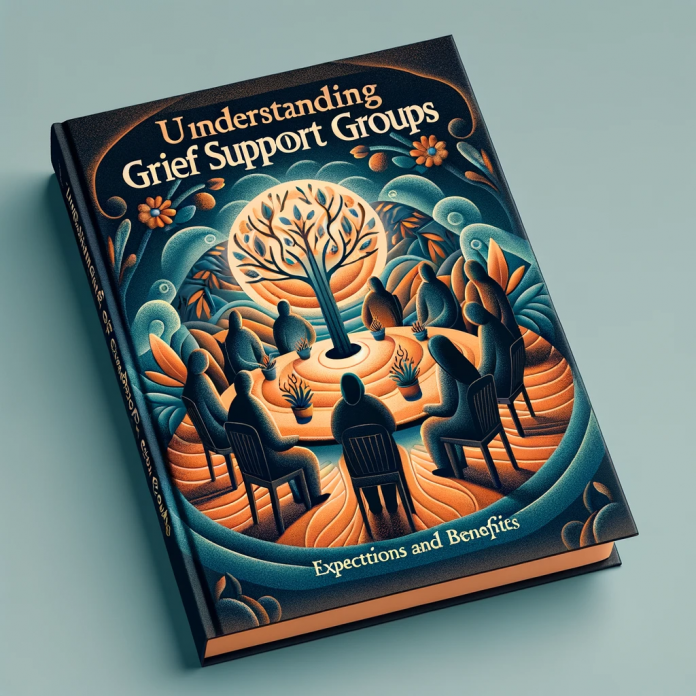Grief is a universal experience, yet it's one that is deeply personal and often isolating. When navigating the complex emotions that come with loss, many people find solace and strength in grief support groups. These gatherings provide a safe space for sharing experiences, expressing feelings, and learning coping strategies. This article delves into what to expect from grief support groups and how they can aid in the healing process.
What Are Grief Support Groups?
Grief support groups are organized gatherings of individuals who have experienced a similar type of loss. They are typically facilitated by a trained professional, such as a counselor or therapist, and provide a supportive environment for individuals to share their experiences and feelings.
These groups can take many forms. Some are general, welcoming anyone dealing with loss, while others are more specific, focusing on particular types of loss such as the death of a spouse, child, or pet. They can also vary in size, from small, intimate groups to larger, more diverse gatherings.
Online vs. In-Person Grief Support Groups
Traditionally, grief support groups have been held in person. However, with the advent of technology, online grief support groups have become increasingly popular. These virtual gatherings offer the same benefits as their in-person counterparts, with the added convenience of being accessible from anywhere.
Online groups can be particularly beneficial for those who live in remote areas, have mobility issues, or simply prefer the anonymity that the online platform provides. However, some people may miss the physical presence and immediacy of in-person groups. Ultimately, the choice between online and in-person groups depends on individual preferences and circumstances.
What to Expect from Grief Support Groups
Joining a grief support group can be a daunting prospect, especially for those who are not accustomed to sharing their feelings with others. Knowing what to expect can help alleviate some of the apprehension.
Firstly, it's important to understand that everyone in the group is there for the same reason: they are grieving. The group provides a safe, non-judgmental space where everyone is encouraged to share their feelings and experiences at their own pace. There is no right or wrong way to grieve, and there is no pressure to share before one is ready.
Structure of Grief Support Groups
While the structure of grief support groups can vary, most follow a similar format. Meetings typically begin with introductions, followed by a group discussion. Some groups may also incorporate activities or exercises designed to facilitate healing and coping.
Most groups are facilitated by a trained professional who guides the discussion and ensures that everyone has a chance to speak. The facilitator also provides emotional support and teaches coping strategies. However, the main source of support comes from the other group members, who share their own experiences and insights.
How Grief Support Groups Help
Grief can be an incredibly isolating experience. Grief support groups help by providing a sense of community and understanding. They offer a space where individuals can express their feelings without fear of judgment, and find comfort in the knowledge that they are not alone in their grief.
Additionally, grief support groups provide practical benefits. They offer coping strategies and resources for navigating the grieving process. They also provide a structured environment that can bring a sense of normalcy during a time of upheaval.
The Power of Shared Experiences
One of the most powerful aspects of grief support groups is the shared experience. Hearing others' stories and realizing that one's feelings are not unique can be incredibly validating. It can also provide a sense of perspective and hope, as group members witness others navigating their grief and moving forward.
Sharing one's own story can also be therapeutic. It allows for the expression of feelings that may have been bottled up, and can lead to insights and breakthroughs. Moreover, the act of helping others by sharing one's own experiences can bring a sense of purpose and positivity during a difficult time.
Conclusion
Grief support groups offer a lifeline for those navigating the tumultuous waters of loss. They provide a safe, supportive environment where individuals can share their experiences, express their feelings, and learn coping strategies. While joining a group may seem daunting, many find that it becomes a crucial part of their healing journey.
Whether online or in-person, general or specific, grief support groups cater to a wide range of needs and preferences. By understanding what to expect and how these groups can help, individuals can make an informed decision about whether a grief support group might be a beneficial addition to their support network.
Recommended Products
- Macorner Hug from Heaven Pillow — Comforting "Hug from Heaven" memorial pillow that wraps the bereaved in warmth and love.
- Tear Soup — A recipe for healing after loss, told through a warm story
- It's OK That You're Not OK — A compassionate guide to navigating grief without pressure to "move on"


-banner.png)





